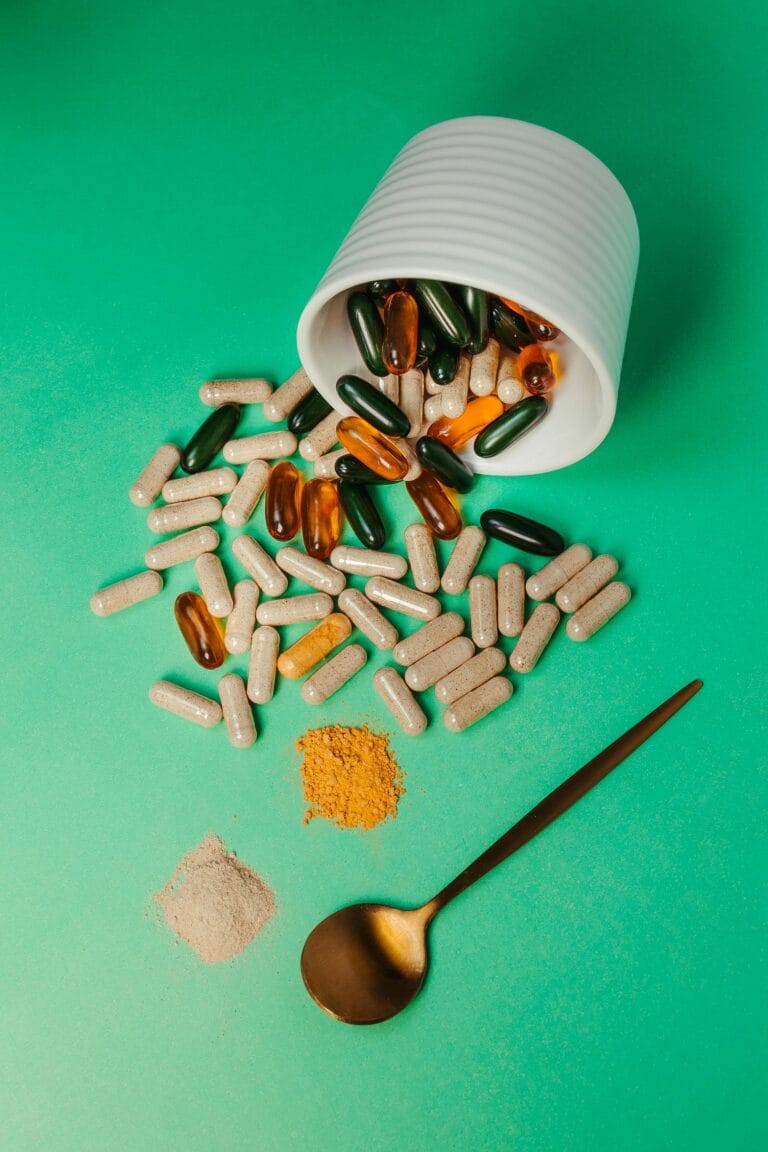FREE SHIPPING OVER $50
Stop Wasting Money: These 5 Popular Supplements May Wreck Your Kidneys, Experts Warn
In the quest for better health, many people turn to dietary supplements. While some offer benefits, others can pose unexpected risks, particularly to kidney health. Your kidneys play a crucial role in filtering waste and maintaining overall balance in your body. It’s essential to be aware of supplements that might inadvertently harm these vital organs.

Understanding Kidney Health and Supplements
Your kidneys filter about 50 gallons of blood each day, removing waste and excess fluids. They also help regulate blood pressure, produce red blood cells, and maintain bone health. Introducing certain substances, including some supplements, can disrupt these processes and lead to kidney damage.
Not all supplements are created equal. Some contain ingredients that may be nephrotoxic (harmful to the kidneys), especially when taken in high doses or over extended periods. It’s crucial to understand which supplements carry these risks to make informed decisions about your health regimen.
5 Supplements That May Harm Your Kidneys
While supplements may promise better energy, stronger bones, or a boosted immune system, many of them are not regulated as strictly as medications. That means side effects, especially those affecting sensitive organs like your kidneys, can fly under the radar. Here are five popular supplements that experts say may pose a risk to kidney health — especially when misused or overused:
1. Calcium Supplements: May Contribute to Stone Formation
Calcium is crucial for bone health, but calcium supplements — especially when taken in high doses or without proper balance with magnesium and vitamin K2 — may increase the risk of calcium-based kidney stones.
When you consume calcium from food, it’s more likely to bind with oxalate in the gut and be excreted safely. But when taken in supplement form, excess calcium may not be absorbed efficiently and can accumulate in the kidneys.
Research found that people who got calcium from food sources had a lower risk of kidney stones than those who relied on supplements.
If you’re at risk for osteoporosis, prioritize calcium-rich foods like leafy greens, yogurt, or sardines before turning to pills. And always pair calcium supplements with adequate hydration.
2. Vitamin C: Linked to Kidney Stones at High Doses
Vitamin C is essential for immune function and collagen production, but when taken in high doses (typically more than 1,000 mg/day), it can break down into oxalate — a waste product that must be filtered by the kidneys. Excess oxalate can crystallize and form calcium oxalate kidney stones.
According to the National Institutes of Health, high-dose vitamin C supplementation has been consistently linked with a greater risk of kidney stones, especially in men.
If you’re already prone to stones or have reduced kidney function, it’s smart to avoid megadoses of this vitamin. Most people can get what they need from a well-balanced diet with fruits and vegetables like oranges, strawberries, and bell peppers.
3. Vitamin D: Too Much Can Cause Toxic Calcium Buildup
Vitamin D helps with calcium absorption and bone health. But more isn’t always better. Excessive intake — especially through high-dose supplements (often over 4,000 IU/day) — can lead to hypercalcemia, or elevated calcium levels in the blood.
This can result in calcification in the kidneys, impairing their function and increasing the risk of stone formation.
A study found that vitamin D supplementation without monitoring calcium levels can significantly raise the risk of kidney-related complications.
Unless you’re diagnosed with a deficiency, avoid high-dose vitamin D supplements unless advised by your healthcare provider. Your body also makes vitamin D naturally with sunlight, and many foods like salmon, fortified milk, and egg yolks contain it.
4. Creatine: Puts Extra Strain on the Kidneys
Creatine is a favorite among gym-goers for building muscle and improving performance. While short-term use at recommended doses is generally considered safe for healthy individuals, long-term use — especially at loading-phase levels (20 grams/day) or in people with underlying kidney conditions — can be risky.
Creatine is broken down into creatinine, a waste product cleared by the kidneys. Excess creatinine in your blood is also a common marker of declining kidney function.
Some case reports have linked high-dose creatine use with acute kidney injury, especially when combined with dehydration or other nephrotoxic substances like NSAIDs or high-protein diets.
If you choose to use creatine, drink plenty of water, avoid exceeding recommended doses (3–5 grams/day), and monitor kidney markers if using long term.
5. Herbal Supplements (e.g., St. John’s Wort, Ephedra, Aristolochia): Hidden Dangers for the Kidneys
Many herbal supplements are marketed as “natural,” but that doesn’t mean they’re safe — especially for your kidneys. Some herbs are inherently nephrotoxic (kidney-damaging), and others may interact with medications or contain heavy metals or unlisted compounds.
- Aristolochic acid, found in some traditional Chinese herbs, has been directly linked to kidney failure and even urothelial cancer.
- Ephedra, now banned in the U.S., was once used for weight loss and energy but has been associated with hypertension and kidney stress.
- St. John’s Wort, commonly used for mood regulation, can interfere with medications used in kidney disease and transplant patients.
According to the National Kidney Foundation, over 25% of people with chronic kidney disease (CKD) report taking over-the-counter or herbal supplements without knowing the risks.
Always research herbs thoroughly and discuss them with your healthcare provider, especially if you take other medications or have reduced kidney function.
Safer Alternatives and Recommendations
To support your health without compromising your kidneys:
- Balanced Diet: Aim to get nutrients from a varied diet rich in fruits, vegetables, whole grains, and lean proteins.
- Consult Healthcare Providers: Before starting any supplement, discuss it with your doctor, especially if you have existing health conditions or take other medications.
- Regular Check-ups: Monitor kidney function through routine medical check-ups, particularly if you’re taking supplements regularly.
- Stay Hydrated: Adequate water intake supports kidney function and helps prevent stone formation.
Conclusion
While supplements can offer health benefits, it’s vital to approach them with caution. Understanding the potential risks and consulting with healthcare professionals can help you make informed choices that support both your overall well-being and kidney health.
Related Articles
- Stop Wasting Vitamin B12: The One Mistake 90% Make (Here’s When to Take It, Say Experts)
- These Medications and Magnesium Don’t Mix—Here’s Why It Can Be Dangerous
- Nature’s Ozempic? 5 Herbs That Burn Fat and Help You Lose Weight Naturally, Says One Doctor
- 5 Proven Benefits of Valerian Root (That Go Way Beyond Sleep)
- I Took Magnesium and Melatonin Together Every Night—Here’s How It Changed My Sleep







